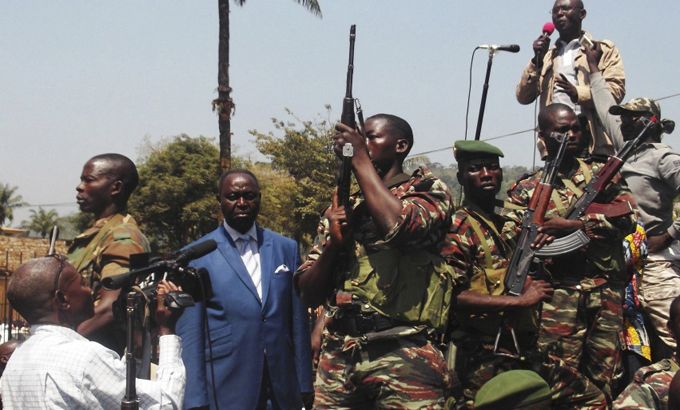
Central African Republic’s looming crisis
Will a rebel coup looking to unseat the government place the country in yet another humanitarian disaster?
The Central African Republic is in crisis as rebels advance towards the capital, Bangui, threatening to topple Francois Bozize, the president.
|
“When Bozize made a coup d’etat in 2003 it was with the same rebels – the Seleka – the people who came with him to take power in Bangui. And now because he did not respect all the engagements he took with those people … the people decided to act against him.” – Magloire Kolisso, a former press attache to President Bozize |
They began their offensive with the capture of strategic mining towns two weeks ago. Now, the Central African Republic’s president has asked France and the US for help.
France already has 200 soldiers in the country but Francois Hollande, the French president, has made it clear they will not intervene. Other players are not keen either: the UN is pulling out non-essential staff and the US has already closed down its embassy.
The rebels of the Seleka coalition have advanced rapidly since launching the current offensive on December 10, capturing four regional capitals, including Ndele in the north, Bambari in the nation’s centre, the mining hub of Bria and, on Tuesday, the western town of Kaga Bandoro.
Some reports now put them just 75km from the capital.
The rebel coalition emerged from a series of armed groups that signed separate peace deals in 2007 and last year. They accuse the government of going back on its word over certain promises made.
|
“There has been a reform of defence agreements that France had with its old colonies in 2008 when President Sarkozy made it quite clear that now we have peace partnerships and not peace agreements – in that it is none of our business to assess the legitimacy of a government or not and to protect this government.“ – Emmanuel Dupuy, from the Institute for Prospective and Security Studies in Europe |
For the moment the presence of troops from neighbouring Chad seems to be deterring the rebels from marching on Bangui. But, fearing the worst, many civilians are already fleeing their homes.
The country has seen waves of displaced people before, but the worry now is whether a failure to reach a negotiated solution could produce another humanitarian crisis.
So, what has triggered the fresh crisis in the Central African Republic?
To answer that question, Inside Story, with presenter Adrian Finighan, speaks to guests: Louis Keumayou, the president of the Pan-African Press Association; Magloire Kolisso, a former press attache to the president; and Emmanuel Dupuy, the president of the Institute for Prospective and Security Studies in Europe.
FACTS ABOUT THE CONFLICT:
- The Central African Republic is a landlocked country of 4.4 million people – with deposits of gold, diamonds, and uranium
- It gained its independence from France 50 years ago. But it is one of the poorest countries in the world, and has seen several coups and rebellions
- The rebel coalition – known as Seleka – accuses the government of not complying with the terms of a 2007 peace deal
- That deal promised the release of political prisoners and cash for fighters who laid down their arms. Groups say they have been left out of profiting from the region’s rich resources
Angry protesters threw rocks at the French embassy on Wednesday - Protesters criticised the former colonial power for not stopping the rebels
- President Hollande said France wants to protect its interests and not the regime